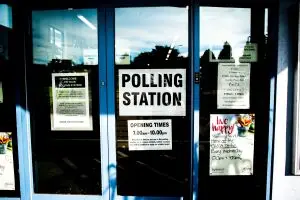Labour Party politicians, delegates and activists headed to Liverpool for the Party’s annual conference. Below Brevia has summarised the key takeaways and policy developments.
BELIEF AND OPTIMISM, BUT STARMER’S TEAM IS NOT COMPLACENT
For the first time in a long time, there was an air of confidence at conference. With the Conservatives enduring significant political pain, Shadow Ministers and Labour activists alike were buoyant about the Party’s prospects at the next general election. The discord traditionally associated with conference was markedly absent. The fact that around 200,000 members have left since Starmer replaced Corbyn is likely to have helped in this regard. Instead, the Party feels largely united and focussed on the goal of winning.
As well as healthy poll leads, the return of business exhibitors and corporate sponsors were pointed to as evidence that the Party is starting to look electable again. But almost every expression of optimism was matched with a comment about the need to avoid complacency. No one is more alive to this risk than Starmer and his team. The task ahead for Labour is still huge; a majority of one would require a swing of 10.5 per cent (greater than in 1997). With two years left in this Parliament, the Conservatives’ fortunes could change and the dynamic of the election campaign is never certain. Starmer highlighted the progress the Party has made under his leadership, and insisted Labour is on the right track but he also underlined the need to stay the course.
LABOUR’S POLICY PROGRAMME IS STARTING TO TAKE SHAPE
Buoyed by a belief they are on the path to power, Starmer and his Shadow Cabinet used their speeches to assert the policies they would implement, rather than simply outline things they would like to do. These key Labour policy announcements included:
Tax
- A reversal of the Conservative’s decision to scrap the 45p income tax rate.
- The replacement of business rates with a new system.
Energy
- A new target of 100 per cent clean power by 2030.
- Doubling Britain’s onshore wind capacity, treble solar power, quadruple offshore wind, invest in tidal, hydrogen and nuclear.
- £60bn investment over ten years to insulate 19 million homes.
- The creation of Great British Energy – a publicly-owned energy generation company.
Health
- Plans to expand the NHS workforce by doubling the number of medical school places from 7,500 to 15,000, create 10,000 extra nursing and midwifery placements, and double the number of district nurses qualifying each year.
- The introduction of a new NHS target to guarantee mental health support within one month.
Transport
- Nationalisation of rail franchises when contracts expire.
- Building an ‘Elizabeth Line for the North’ and delivering Northern Powerhouse Rail and HS2 in full.
- Ending the ban on communities establishing municipal bus companies.
Housing
- A new target of 70 per cent home ownership.
- The ending of automatic evictions for rent arrears and abolition of no-fault evictions.
- Creation of a national database of landlords and a legally binding decent home standard.
Employment
- Introduction of a Fair Work Standard to guarantee fair conditions, job security, wellbeing, proper training, rights at work and union access.
- Giving self-employed workers the right to a written contract and timely payment by law.
Other
- A wave of insourcing where public bodies must show that work could not be better done in house before any service is contracted out.
EYE-CATCHING POLICY MOTIONS MAY NOT BE REALISED
Labour’s conference has an important democratic function where delegates from constituencies, trade unions and socialist societies vote on motions. Conference passed 17 policy motions this year including on proportional representation (PR), a £15 minimum wage, public ownership and the abolition of the House of Lords. However, this does not guarantee the inclusion of these policies in a manifesto as it is Labour’s National Policy Forum (NPF) and the ‘Clause V’ meeting that decide on the manifesto. For instance, the motion on PR received much media attention but Starmer has signalled electoral reform is not a priority.
BREVIA CONSULTING PROVIDES STRAIGHTFORWARD POLITICAL ADVICE AND SUPPORT TO BUSINESSES AND ORGANISATIONS
Discover how Brevia can help you and your organisation by contacting the Brevia Team on 020 7091 1650 or contact@brevia.co.uk




